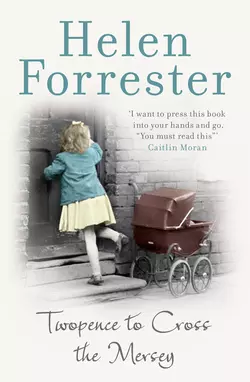Twopence to Cross the Mersey

Helen Forrester
Тип: электронная книга
Жанр: Биографии и мемуары
Язык: на английском языке
Стоимость: 150.68 ₽
Статус: В продаже
Издательство: HarperCollins
Дата публикации: 16.04.2024
Отзывы: Пока нет Добавить отзыв
О книге: This major best-selling memoir of a poverty-stricken childhood in Liverpool is one of the most harrowing but uplifting books you will ever read.When Helen Forrester’s father went bankrupt in 1930 she and her six siblings were forced into utmost poverty and slum surroundings in Depression-ridden Liverpool. The running of the household and the care of the younger children all fell on twelve-year-old Helen. With very little food or help from her feckless parents, Helen led a life of unrelenting drudgery and hardship.Writing about her experiences later in life, Helen Forrester shed light on an almost forgotten part of life in Britain. Written with good humour and a lack of self-pity, Forrester’s memoir of these grim days is as heart-warming as it is shocking.